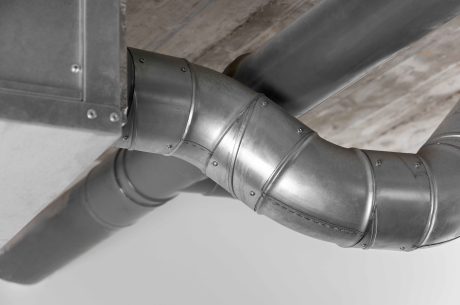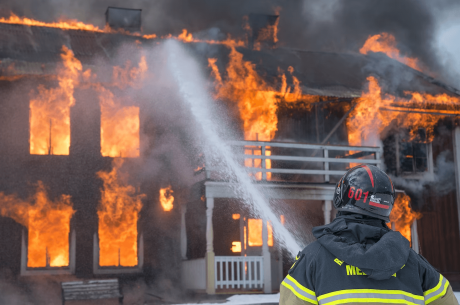
Are you experiencing property water damage from an unexpected flood or pipe burst? When it comes to dealing with water damage, understanding key differences between water remediation and restoration. Remediation tackles and lessens the underlying cause of the issue, whereas restoration services concentrate on returning damaged objects and property to their pre-damage condition. In this post, we’ll discuss the key differences between these services to help property owners know exactly which one they need because each strategy uses a different set of techniques, purposes, and outcomes.
What Is Water Remediation?
Water remediation is the swift response to water damage, aiming to mitigate its immediate and long-term effects. It involves the prompt extraction of excess water, followed by thorough drying and dehumidification of affected areas to prevent mold growth and structural decay. Sanitization and disinfection procedures are implemented to eliminate potential health hazards, ensuring a safe environment.
Additionally, remediation professionals assess the extent of damage, employing specialized equipment and techniques to restore the property to its pre-damage condition. This helps safeguard structures and belongings, minimize disruption, and mitigate potential health risks associated with prolonged exposure to water.
What Is Water Damage Restoration?
Water damage restoration is the comprehensive process of repairing and rebuilding properties affected by water intrusion. Professionals undertake structural repairs, replacing damaged materials like drywall, flooring, and insulation. Content restoration involves cleaning and restoring affected belongings, while reconstruction rebuilds areas beyond repair.
Coordinating with experts like plumbers and electricians ensures safety and functionality. Water damage restoration aims to return properties to their pre-damage state, safeguard investments, and restore comfort and livability for occupants.
Key Differences Between Water Remediation and Water Damage Restoration
Whether you have a leaky roof, a burst pipe, or a flood in your basement, water damage can cause significant property damage and risk to your health. Knowing what is water remediation from water damage restoration can help you identify the best approach for your unique circumstances. While water remediation focuses on immediate actions to mitigate damage and ensure safety, water damage restoration involves comprehensive repairs and reconstruction to return the property to its original condition.
Here are 8 key differences between water remediation and water damage restoration.
- Water remediation typically involves immediate actions taken to minimize damage shortly after water intrusion occurs. This may include water extraction, dehumidification, and sanitization processes.
- Water damage restoration encompasses a broader range of activities, including structural repairs, replacement of damaged materials, and restoring the property to its pre-loss condition. It often involves more extensive reconstruction work.
Timeline
- Water remediation is typically conducted immediately after water damage. It aims to prevent further damage from occurring, usually within the first 24 to 48 hours after the incident.
- Water damage restoration follows water remediation and can take considerably longer, depending on the extent of the damage. Restoration efforts may span several days to weeks, especially if significant structural damage or extensive repairs are required.
Expertise and Equipment
- Water remediation primarily requires expertise in water extraction, drying techniques, and mold remediation. Professionals often use equipment such as water pumps, dehumidifiers, and moisture meters.
- Water damage restoration requires a broader range of expertise, including carpentry, plumbing, electrical work, and general construction. Restoration professionals use a variety of tools and equipment to repair and rebuild damaged structures and belongings.
Outcome
- The primary goal of water remediation is to prevent further damage and restore the affected area to a safe and habitable condition. This may involve drying out surfaces, removing contaminants, and addressing potential health hazards.
- The primary goal of water damage restoration is to fully repair and restore the property to its pre-damaged state. This involves repairing structural damage, replacing damaged materials, and restoring the property’s aesthetics and functionality.
Focus on Health Hazards
- Water remediation prioritizes the identification and mitigation of potential health hazards associated with water damage, such as mold growth, bacteria, and other contaminants. Remediation professionals focus on removing or treating these hazards to ensure a safe environment.
- Water damage restoration also addresses health hazards but primarily through the repair and restoration of affected structures and materials. Restoration efforts aim to eliminate sources of contamination and restore the property to a clean and healthy state.
Insurance Coverage
- Water remediation services are often covered by insurance policies, as they are considered essential for preventing further damage and ensuring the safety of the property and its occupants. Insurance companies typically cover the costs associated with remediation efforts.
- Water damage restoration may also be covered by insurance, but coverage can vary depending on the specific policy and the extent of the damage. Restoration services that involve repair and reconstruction may have different coverage terms compared to remediation services.
Cost Structure
- Water remediation costs are often calculated based on the scope of work required to mitigate the damage, such as the extent of water extraction, drying, and sanitization efforts. Remediation companies may provide upfront estimates or use pricing models based on industry standards.
- Water damage restoration costs are typically more variable and can depend on factors such as the extent of structural damage, the cost of materials and labor for repairs, and any additional services required (e.g., mold remediation and odor removal). Restoration costs may also include expenses related to temporary housing or relocation during the restoration process.

FAQs
Why is water remediation necessary?
Water remediation is the process of mitigating and minimizing damage caused by water intrusion or flooding. It involves extracting excess water, drying affected areas, and treating potential hazards like mold and contamination. It’s necessary to prevent further damage to structures and belongings and to ensure the safety and health of occupants.
What are the common causes of water damage that require remediation?
Water damage can result from various sources, including burst pipes, leaking appliances, sewage backups, storms, and natural disasters. Any situation where water enters a property and damages structures or contents may require remediation.
How soon should water remediation be initiated after water damage occurs?
It’s crucial to begin water remediation as soon as possible after water damage occurs. Ideally, remediation efforts should commence within the first 24 to 48 hours to prevent mold growth, structural damage, and other long-term consequences of water intrusion.
Do I need to hire a professional water remediation company, or can I handle it myself?
While minor water damage incidents may be manageable for homeowners to address on their own, significant water damage or flooding typically requires professional water remediation services. Certified remediation professionals have the expertise, equipment, and experience to mitigate water damage and ensure proper, thorough remediation and restoration.
Conclusion
Dealing with water damage requires working with a reputable company that can guide you through the water remediation and restoration process. At PuroClean Zephyrhills, our experts only use the newest tools and techniques to minimize damage, eliminate future issues, and return your property to its pre-damage condition. Contact us today.



